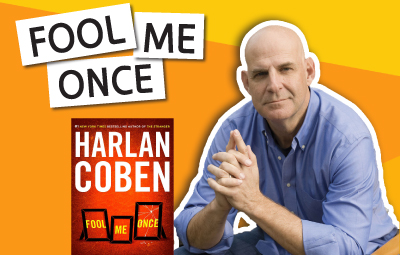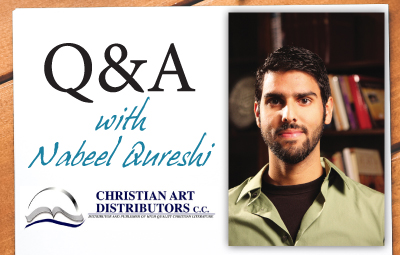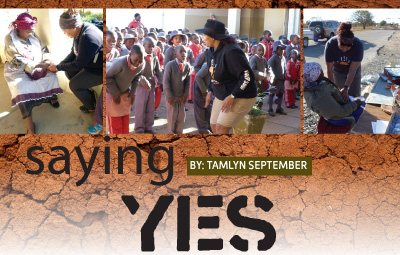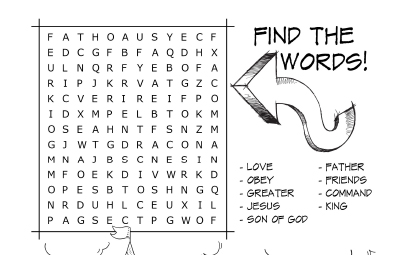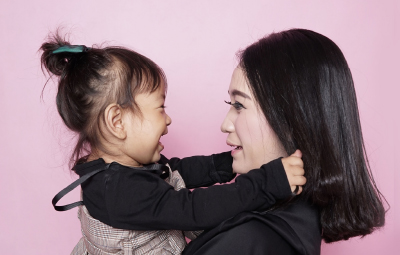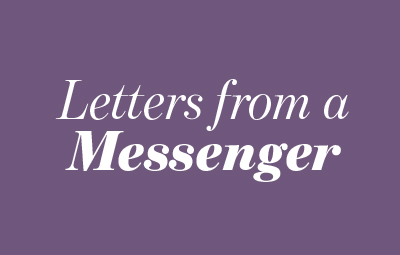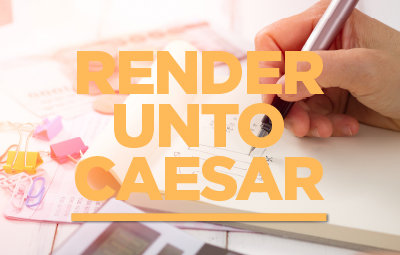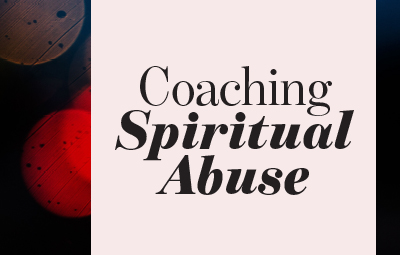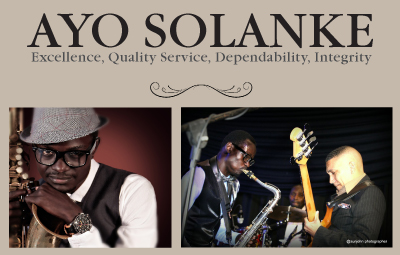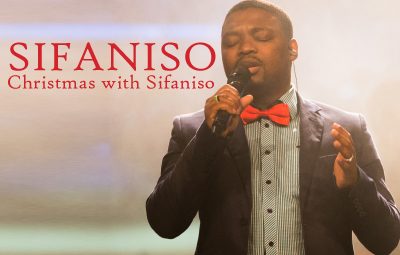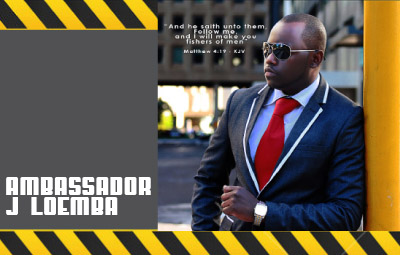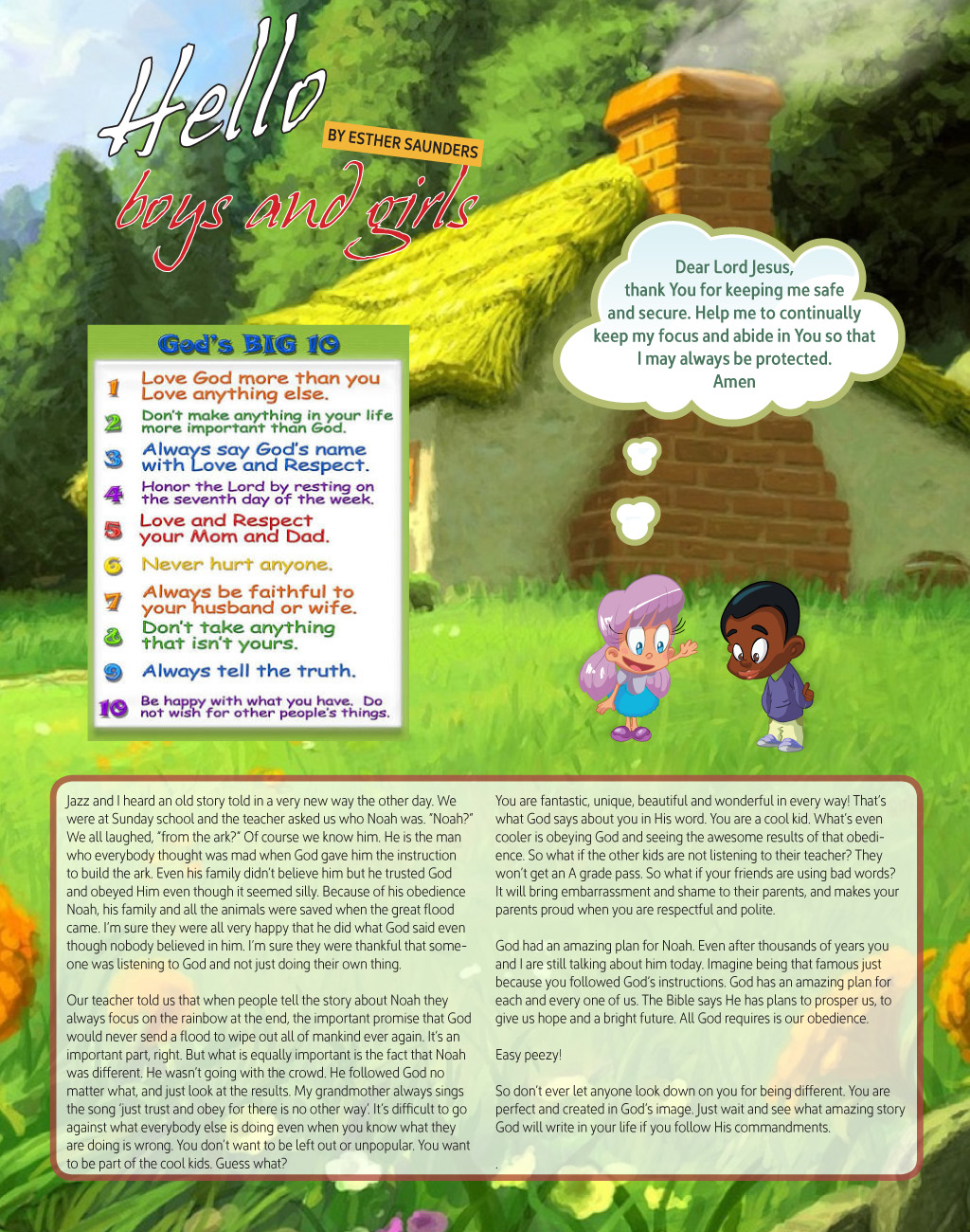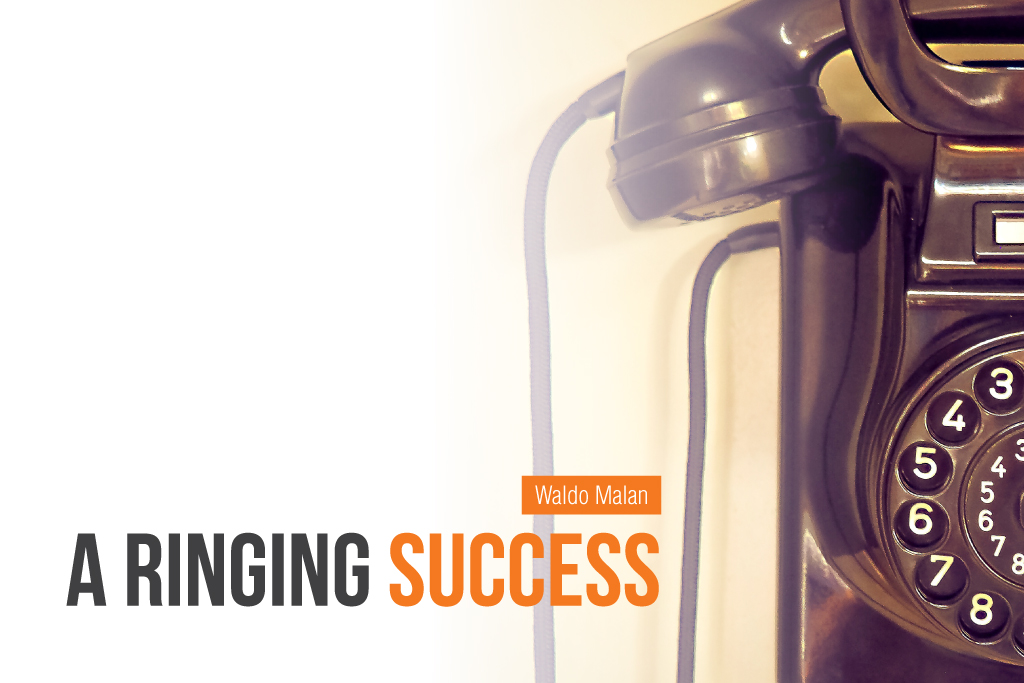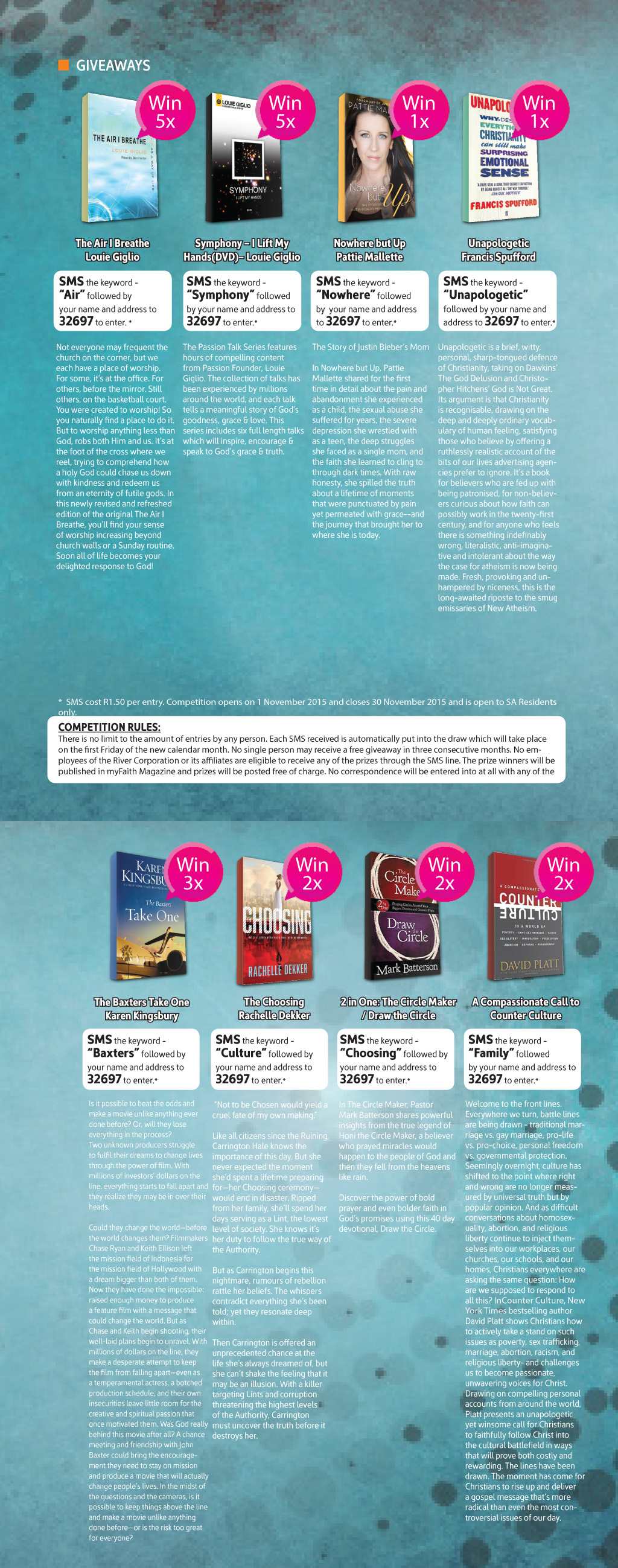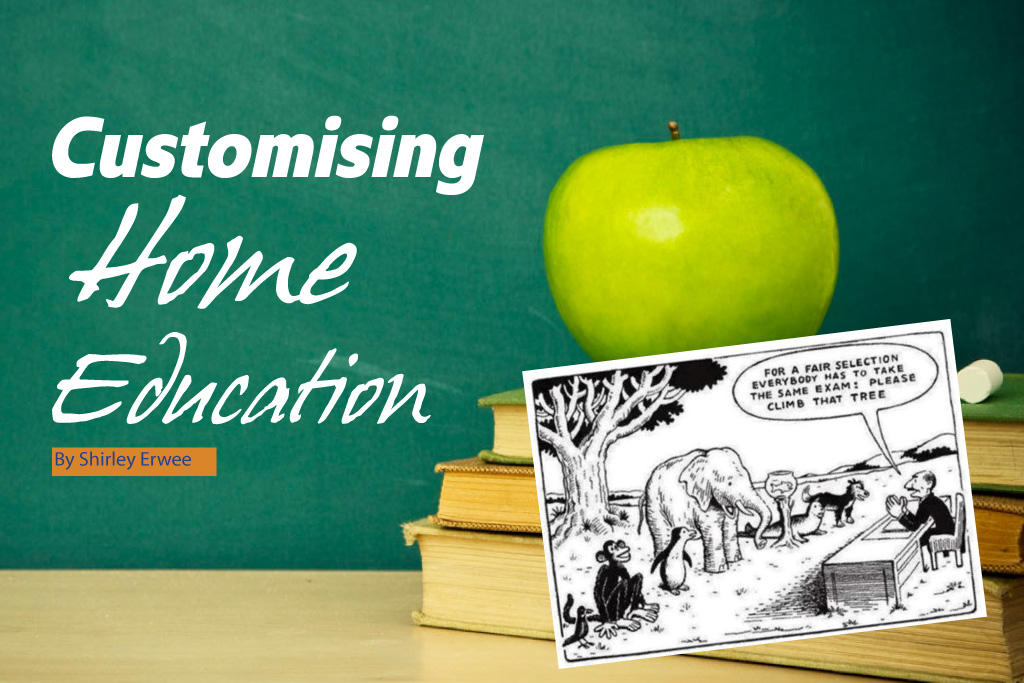
The majority of schools in South Africa are obligated to use the national curriculum, which is a one-size-fits-all programme designed for classroom use on masses of children. The accompanying cartoon highlights one of the main weaknesses of such a system.
Homeschoolers, however, have the freedom to use whichever learning materials they choose.
In the Pretoria High Court, a comment was made in March 2011 that the national curriculum is not binding on independent schools and parents who educate their children at home.
For new Homeschoolers, choosing learning materials can therefore be quite a daunting undertaking as there is so much to choose from.
Even for those who have already started, the variety of options can undermine their confidence, as parents tend to wonder if they have made the best choice for their children. Many parents are constantly comparing what they are doing in their homes, with what children in schools or other home schools are doing.
It takes some time to build up confidence, experience and a good knowledge of the many choices and then to have the wisdom and discernment to pick good options for each of your children.
Most parents starting out with home schooling still have a very school-based idea of what education involves.
Their limited understanding based on the classroom model is only one slice of the pizza that could be called Education.
Because it's a huge responsibility to take on the education of your children yourself, instead of delegating it to a school, new homeschoolers very often choose a very highly structured, allin-one curriculum package which is very like what they experienced at school:
1. a text book for every subject
2. a time-table to stick to in order to get through the syllabus for each subject in a prescribed time
3. assignments
4. tests
5. constant assessment and
6. examination services
What they are in fact doing, is replicating the school system at home.
They choose something that is familiar to them because they feel insecure and a curriculum package that covers 'everything' and offers accountability gives them security. We call these programmes 'canned curriculums' - some even offer different coloured boxes for each grade!
Martie du Plessis of Dynamis, a home school consultant, reports that after two years, most home schooling families are stressed out or burnt out and either put their children back into schools or decide that they need to change the curriculum that they use.
It's sad, that for so long, they persist and try to persevere with something that is taking the joy out of educating at home.
For any readers reading this, who are very content with their canned curriculum, the advice is:
"If it's not broken, don't fix it."
In a minority of families, both the parents and the children have the right personality types and learning styles for these structured programmes to work successfully, but in most cases, the rigidity and the pressure of sticking to the programme spoils the home schooling experience for the family.
In 18 years of home schooling, we have found that one of the biggest challenges for home schooling parents is to break away from the model of education that we received in school as this is not the model of pedagogy (teaching) that works best in the home school scenario.You see, once we take our children out of school, we have to take the school out of the children...
...as well as 12 years of schooling out of the parents, before it really starts to go well! So, eclectic or customised home education is the alternative to canned curriculums and doing school at home!
Martie du Plessis reports that over 80% of home schooling mothers love to research their options, collect data and take a long time finding all the answers they need before they make a decision. They are not impulsive risk-takers! This is probably a good thing, when the futures of children are at stake!
However, if something is not working, we should have the wisdom and the guts, to drop it at once and not let it spoil another home schooling day!
There are many, many philosophies about learning in the home schooling community at large, and an even larger variety of learning materials designed to facilitate each philosophy. Read up about them and find the strengths of each one and then use an eclectic approach in your own home.
Instead of a canned curriculum, piece together different learning materials for the different subjects that your children will be learning. Find programmes that suit their personalities and learning styles. Create your own unique DIY curriculum!
On our home schooling journey, which began in 1997, we have found that the materials we like best and stick to (or use repeatedly at different ages and stages), are those which have been written by homeschoolers, for homeschoolers, usually by a person who is knowledgeable in a given field and passionate about sharing his/her subject.
As a result, these products are designed for the home school scenario and they have a very personal 'feel' when you use them.
By taking an eclectic approach, you can customise your children's educations to suit their unique personalities and gifting. In our home, one son does an electronics course as part of his formal learning, another family considers the expense of robotics equipment as part of home schooling for their engineering child, in another home, music is a core subject for the musically gifted child, while graphic designing or animation could suit another child!
Traditional school subjects are not the only options!
Most of us start out thinking that home schooling is about academics, it's about getting our children through a prescribed curriculum so that they can obtain a certificate at the end of the process that says 'matric'.
However, what mass schooling can never achieve, that home schooling can do well, is the shaping and moulding of each child's character and unique make-up. (Diligent, resourceful parents of schooling-going children can facilitate this too, but not as easily as diligent homeschoolers can just because of restricting time.)
Schools manage people, education changes hearts.
"Authentic education is where the parent finds the best pathway to develop a child to the fullest, through a network of people and resources. The pathway is determined by the core elements in the child and therefore true development of people must take into account how God has created the person. In this way the parent or educators work with God to raise up godly people." Martie du Plessis, Education vs Certification
The Bible says the parents should "train up a child in the way he should go..." (Proverbs 22:6) How can any curriculum system that resembles the institutional school system not hinder the process of developing a child's inborn strengths and uniqueness?
Education involves equipping children for life and there is no one-size-fits-all way to accomplish this!
Eclectic, customised education, with specially selected electives is the way to develop our children to their fullest potential and to "light the fire" - the love for lifelong learning in our children.
Martie du Plessis give guidance to families about alternative education, mostly home education. Martie explains to parents how to find the learning pathway for each child to enable the child to be a job creator rather than a job seeker. When parents have more time with their children, they can live a more value based life.


